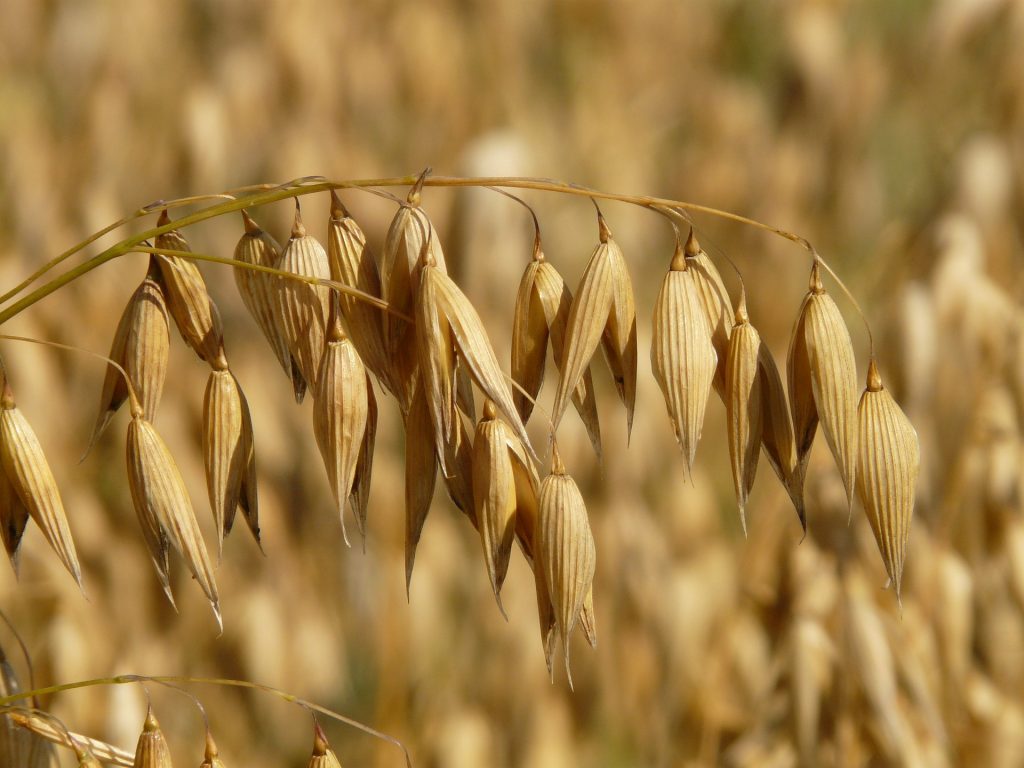 There are some traditional treatments for mood disorders that have very limited research to substantiate the claims. However, this should not be seen as showing the treatments are ineffective as absence of proof does not constitute proof of absence. Oat seeds (avena sativa) are one such herbal treatment for which there is little in the way of scientific evidence. Oats are a member of the Poaceae (grass) family of plants, and are grown throughout the World for their edible seed. The oat plants grow to about 1.5 meters in heights, with non-articulate leaves and the cereal grains appear at the top of the plant. Oats are suited to growth in temperate regions, which explains their widespread cultivation across Europe. They are an important cereal crop throughout the World and the domestication of the wild oat and its use as a crop for food is considered to have occurred in England and parts of mainland Europe. The wild red oat from Asia is thought to be the ancestor of the cultivated oat now used in agriculture.
There are some traditional treatments for mood disorders that have very limited research to substantiate the claims. However, this should not be seen as showing the treatments are ineffective as absence of proof does not constitute proof of absence. Oat seeds (avena sativa) are one such herbal treatment for which there is little in the way of scientific evidence. Oats are a member of the Poaceae (grass) family of plants, and are grown throughout the World for their edible seed. The oat plants grow to about 1.5 meters in heights, with non-articulate leaves and the cereal grains appear at the top of the plant. Oats are suited to growth in temperate regions, which explains their widespread cultivation across Europe. They are an important cereal crop throughout the World and the domestication of the wild oat and its use as a crop for food is considered to have occurred in England and parts of mainland Europe. The wild red oat from Asia is thought to be the ancestor of the cultivated oat now used in agriculture.

Of the phytochemicals present in oats, flavonoids are likely candidates for the mood enhancing effects. More than 28 flavonoids have been identified in oats including glycosides of the flavones apigenin and luteolin. Flavones are known to be able to bind to the benzodiazepine receptor in the brain, and this is suggested to explain their sedative, anxiolytic and calmative properties of flavones. Triterpenoid saponins are found in oats, but are absent from other monocot cereal grains. Triterpene saponins are present in Panax ginseng, and may explain some of the anti-stress and mood enhancing effects of ginseng. Their present in oats therefore suggests that oats could possess similar adaptogenic and cognitive effects to ginseng.
For oats to be used as an effective treatment for mood disorders, they must be picked when immature, during the milk stage. At this point the seed produces a milky exudate, indicating it is at the correct stage for use. Immature oat seed extracts have been used traditionally to treat depression and to alleviate people experiencing cravings, particularly those from nicotine withdrawal. As with many herbs used as nervines (a plant that has an effect on the nervous system), immature oats seeds have also been used to treat epilepsy. Oats are a good source of starch, fibre, protein and certain lipids. However, these nutrients are unlikely to explain the medicinal properties of oats. Oats also contain a number of phytochemicals that are more likely to be involved in any medicinal effects. These include phenolic acids, alkaloids, vitamin E, flavonoids, saponins and sterols. Some of these phytochemicals, particularly flavonoids, are known to have properties that allow them to alter brain chemistry and mood.
Eat Well, Stay Healthy, Protect Yourself
RdB
